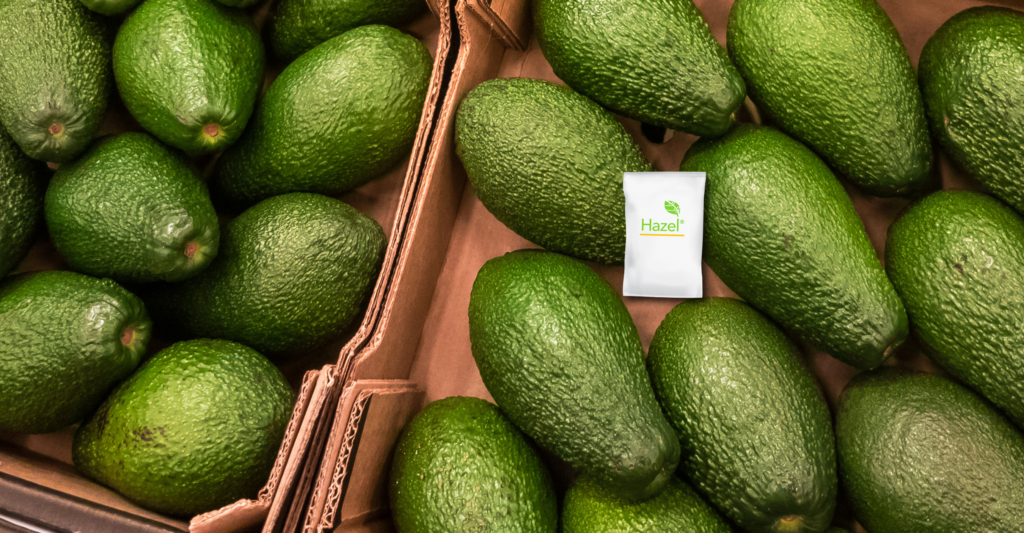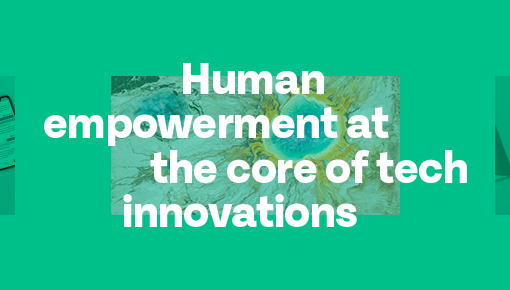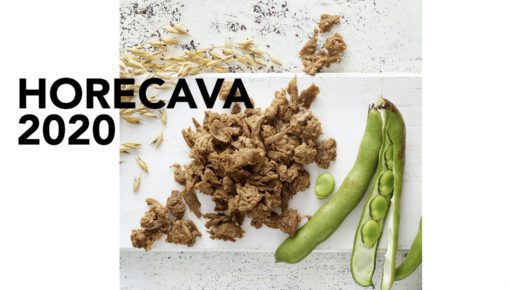Food revolution
Following the successful debut of the Impossible Burger at CES 2019, and Impossible Pork at CES 2020, this year the largest consumer electronics fair in the world opened an area dedicated entirely to food technology.
State-of-the-art technological innovations showed how the sector is transforming, from agriculture to ingredient innovation, food preparation and more. The overarching themes where technology is accelerating the domain are: efficiency, convenience, personalisation and taste and, maybe even more importantly, sustainability and the reduction of food waste.
Clever Cooking
The industry is speeding up to facilitate people in their need to make smart choices when it comes down to food intake.
Consumers will look to improve their dietary habits as they become more conscious about the importance of healthy, nutritional food intake –a trend that is accelerated by the COVID-19 pandemic. However, taking good care of our meals is often perceived as a time-consuming chore.
Many consumers are adopting dietary preferences, such as vegan, lactose-free or low-carb, making cooking even more complex. And with flexitarianism on the rise, there is a growing need for tasty alternatives to animal proteins.
With a specific focus on food technology at CES this year, it is clear that the food industry is catching up to be more technology-driven, as well as further leveraging big data, AI and IoT to accommodate the changing world and consumer needs it serves.
For example, personalized meals that match your wellness goals and lifestyle choices are delivered weekly by Gastrofy, a Stockholm-based start-up, who uses algorithms to collect recipes that suit the individual’s needs.
We see that Fungi is taking the spotlight as a promising alternative to animal proteins, with a long list of health benefits as well as being highly sustainable in production.

Nature’s Fynd is one company demonstrating this. Based on their ‘volcanic fungi discovery’ and breakthrough fermentation technology, they create tasty meat replacers and dairy products, producing 5.4x more protein per acre of cropland than animal proteins, with considerably less water usage and greenhouse gas emissions.
But selecting personalized meals and ingredients is of course just part of the challenge – you still have to cook!
Luckily, smart appliances and robotics are gradually entering the consumer’s kitchen. Food Processors, like the Complete Chef from Cuisinart, will do some of the heavy lifting for you, to give you a healthy, culinary and – most importantly – tasty experience.
Ultimately, the ease with which we can integrate these new services and appliances into our daily lives is perhaps the most important factor in getting the consumer on board.
Re-think our food supply
With almost 10 billion people to feed in 2050, there is real urgency to make the food supply chain smarter & sustainable.
“Globally, if food waste could be represented as its own country, it would be the third largest greenhouse gas emitter, behind China and the United States.”
It is imperative that the food industry innovates to cope with future demands, in which we face the threat of global warming alongside a fast growing population. Two of the major challenges this industry faces are sustainably increasing food production and reducing food waste.
Technology seems to be the answer for farmers to optimise production while using the same amount of land. AI, automation and machine learning are entering the field, so farmers can make informed decisions for their crop.
John Deere has a long history in developing cutting-edge technologies to accelerate smarter food production and has now introduced a fully autonomous tractor that can be easily controlled through an app.
Convincing the more traditional farmers to use this new technology might need some work, but it certainly paves the way for a brighter future.
Alternatively, vertical farming is on the rise and seems to be a promising extension to traditional farming, with indoor, fully controlled environments for cultivation ensuring efficient production through unprecedented control. Major benefits are the sustainability of production, easy scalability and enabling hyper local production.
Grov offers fully autonomised, vertical farming solutions based on a firm belief that indoor farming can provide a substantial way to address today’s challenges.
However, while advances in sustainable food production look promising, it is estimated that a mind-blowing 1/3 of all food produced globally is lost or goes to waste.

For fresh foods, much of this is due to early spoilage, creating post-harvest challenges to tackle. Hazel Technologies has developed a solution for this, lengthening shelf life by adding small, packaged inserts to the crop, which use biochemistry to ward off fungus and mould and therefore slow the spoilage of fruits and vegetables.
The agricultural industry seems to have its full focus on becoming more sustainable for people, planet and profit, highlighting the importance of this industry in addressing the global challenges we face.
We’re happy to see that major technological innovations, such as AI, machine learning and data science seem to have entered this domain permanently, to accelerate the change we so desperately need.
This article is part of the 2022 Tech Innovations Report. To read more insights across the Health and Home tech sectors, check out the full report.



